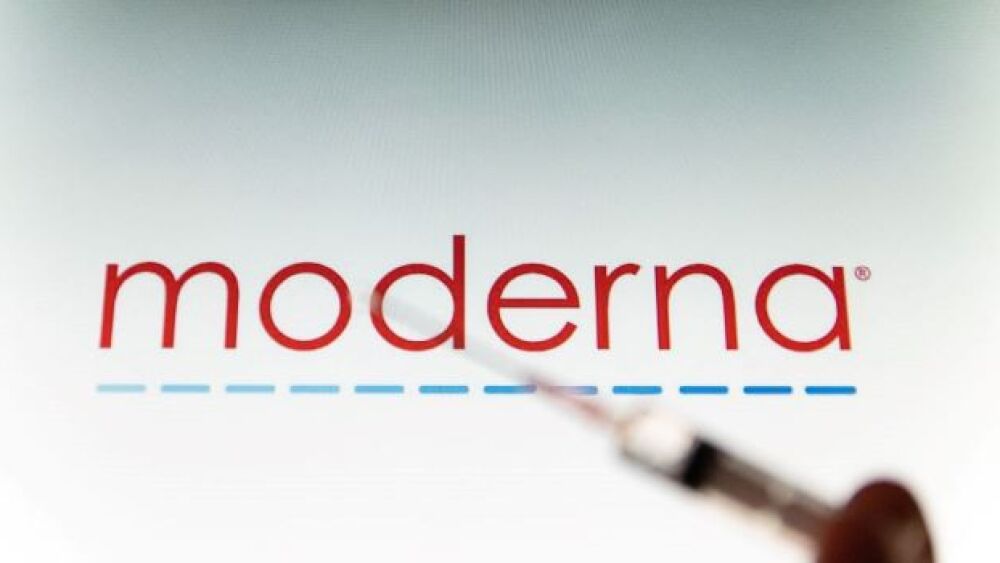Moderna has decided to drop the patent application to “allow more time for discussions with the NIH”, which will be aimed at an amicable resolution.
Nicolas Economou/NurPhoto via Getty Images
On Friday, Moderna‘s legal battle over who deserves credit for a crucial part of its COVID-19 vaccine was put on hold after the company abandoned its key patent application, a filing that could affect its future distribution and profits.
Moderna has decided to drop the patent application to “allow more time for discussions with the NIH”, which will be aimed at an amicable resolution.
The issue at stake here concerns credit for a key component of Moderna’s vaccine, one of three authorized for use in the U.S. The vaccine was borne of a 4-year collaboration between Moderna and the National Institute of Allergy and Infectious Diseases, which is part of the National Institutes of Health (NIH). The two entities worked together on the development process, which included testing of the vaccine. The NIH also sponsored the clinical trials and in 2020, the government referred to the product as the “N.I.H.-Moderna Covid-19 vaccine.”
The debate went public when the NIH requested that Moderna add the names of three scientists as co-inventors in its patent application.
While the company still believes the genetic sequence in question, was invented solely by its own scientists, Moderna also acknowledged an equally strong contention by the NIH that its researchers should be named co-inventors for their work.
Moderna had been seeking to patent the genetic sequence, which uses the genetic material known as messenger RNA. mRNA instructs the body’s cells to make a harmless version of the spike protein that studs the coronavirus’s surface, prompting a powerful immune response.
Earlier this year, the patent office informed Moderna that the company could secure the intellectual property claims.
Moderna’s decision to abandon the patent application was made to avoid interfering with further discussions to resolve the dispute. The mRNA leader will instead focus its attention on increasing the vaccine’s effectiveness against the emerging Omicron variant.
The NIH was informed of Moderna’s decision on Dec. 10. The company has filed a separate type of application that could still secure the intellectual property claims it was seeking at a later date.
Patent holders have the right to a share in the billions of sales dollars generated by the vaccine, though the NIH has not indicated whether it is interested in royalties. If the NIH scientists are credited on the patent, theoretically, the government could have more of a say in which companies manufacture the vaccine. The earnings would also bring revenue to the federal treasury.





